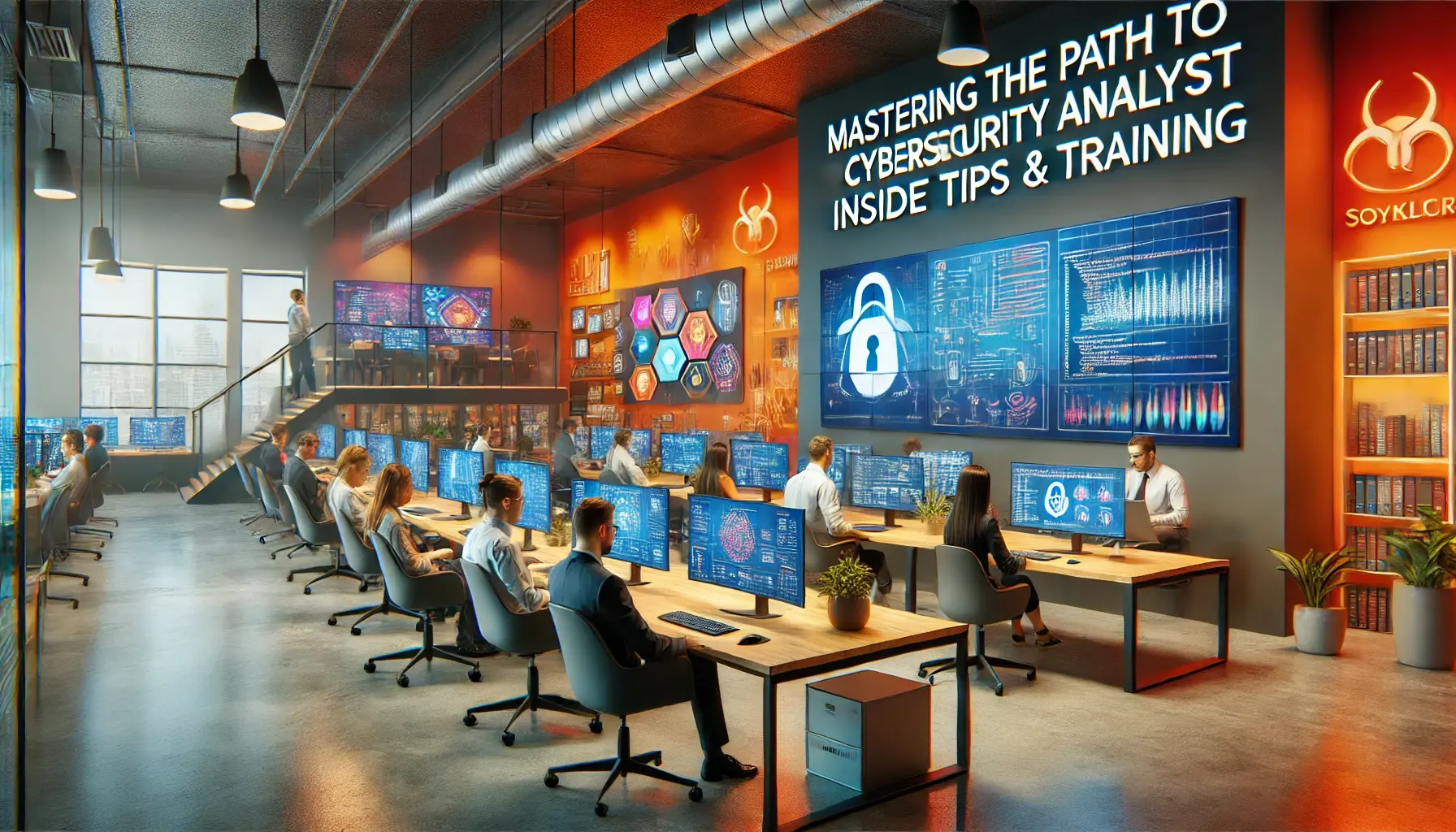4 min read
The Future of Cybersecurity Internships in Summer 2024
Rising Demand for Cybersecurity Professionals in the USA The United States is witnessing a significant rise in the demand for cybersecurity...
3 min read
 The Amazing Team at Force One
:
Jul 10, 2024 8:22:27 AM
The Amazing Team at Force One
:
Jul 10, 2024 8:22:27 AM
Introduction:
In an increasingly interconnected world, where businesses and individuals rely heavily on digital technology, the importance of cybersecurity cannot be overstated. Cybersecurity companies play a pivotal role in safeguarding sensitive data from malicious attacks, ensuring the smooth functioning of businesses and protecting national security.
This article will delve into the relevance of cybersecurity companies in the USA, focusing on various aspects such as emerging trends, industry standards, and the impact of cyber threats. With a particular emphasis on leading cybersecurity bootcamp, ForceOne Cybersecurity, we will explore the effectiveness of training programs in equipping professionals with the necessary skills to combat cyber threats.
1. Growing Cyber Threat Landscape:
In recent years, there has been an exponential rise in the number and complexity of cyber threats. The USA, being a global technology hub, faces significant challenges in securing its critical infrastructures, including government systems, healthcare networks, financial institutions, and utilities. This has elevated the demand for cybersecurity companies to provide cutting-edge solutions and proactive strategies to combat cyber threats effectively.
2. Industry Standards and Regulations:
Due to the ever-evolving nature of cyber threats, industry standards and regulations have become essential for cybersecurity companies in the USA. Organizations are required to adhere to frameworks such as the NIST Cybersecurity Framework and the Payment Card Industry Data Security Standard (PCI DSS) to ensure the implementation of robust security measures. Cybersecurity companies offer tailored solutions that help businesses comply with these standards, minimizing the risk of data breaches and the accompanying financial and reputational damage.
3. Emerging Technologies and Their Security Challenges:
The emergence of revolutionary technologies, such as artificial intelligence, cloud computing, and the Internet of Things (IoT), has brought about unique cybersecurity challenges. Cybersecurity companies need to stay ahead of malicious actors who constantly exploit vulnerabilities in these technologies. With the increasing adoption of artificial intelligence in cyber attacks, companies must employ advanced threat intelligence tools and machine learning algorithms to detect and neutralize threats promptly.
4. The Human Factor: Training and Awareness:
While technological advancements are vital, the human factor still remains the weakest link in cybersecurity. Cybersecurity companies are increasingly focusing on training programs and awareness campaigns to educate employees about best practices, such as strong password hygiene, recognizing phishing attempts, and maintaining proper data access controls. ForceOne Cybersecurity, a leading cybersecurity bootcamp in the USA, offers comprehensive training programs that equip professionals with the necessary skills to tackle evolving cyber threats head-on.
5. Protection of Critical Infrastructure:
The protection of critical infrastructure, such as power grids, transportation systems, and water treatment plants, has become a top priority for cybersecurity companies in the USA. A successful cyber attack on these infrastructures can cripple entire cities and regions, leading to disastrous consequences. Cybersecurity companies employ advanced techniques, including intrusion detection systems and security operations centers, to safeguard critical infrastructures from cyber threats.
6. The Role of Government in Cybersecurity:
The US government plays a significant role in nurturing cybersecurity companies and fortifying national cyber defenses. Through initiatives such as the Cybersecurity and Infrastructure Security Agency (CISA) and National Initiative for Cybersecurity Education (NICE), the government collaborates with the private sector to share threat intelligence, conduct risk assessments, and develop expertise. This partnership ensures the development of a robust cybersecurity ecosystem and enhances the overall security posture of the nation.
7. The Evolution of Cyber Insurance:
As the cost of cyber attacks continues to rise, cyber insurance has become an essential aspect of enterprise risk management. Cybersecurity companies work closely with insurance providers to develop policies that cover potential losses resulting from cyber incidents. By conducting comprehensive risk assessments, these companies help insurers establish accurate premium rates, taking into account an organization's cybersecurity posture and measures implemented to mitigate risk.
8. ForceOne Cybersecurity: The Best Cybersecurity Bootcamp in the USA:
Among the range of cybersecurity training programs available, ForceOne Cybersecurity stands out as the best cybersecurity bootcamp in the USA. With a comprehensive curriculum and hands-on training, ForceOne prepares professionals to tackle real-world cyber threats effectively. Their industry-certified instructors deliver in-depth knowledge on emerging technologies, incident response, penetration testing, and more, equipping individuals with the necessary skills to protect organizations against evolving cyber threats.
FAQs:
Q1: Are cybersecurity companies only relevant for large organizations?
A1: No, cybersecurity companies cater to businesses of all sizes, as cyber threats are indiscriminate and can affect any organization, regardless of its size.
Q2: What is the average cost of a cybersecurity breach for organizations?
A2: The average cost of a cybersecurity breach for US organizations in 2020 was approximately $8.64 million, including direct and indirect expenses.
Q3: How frequently should organizations conduct cybersecurity risk assessments?
A3: It is recommended that organizations conduct cybersecurity risk assessments at least annually, or whenever there are significant changes to their IT infrastructure or operations.
Q4: Are cybersecurity bootcamps a viable pathway for individuals seeking a career in cybersecurity?
A4: Absolutely! Cybersecurity bootcamps provide accelerated and intensive training, equipping individuals with the necessary skills to enter the cybersecurity field in a relatively short period.
Q5: Can cybersecurity companies provide 24/7 monitoring and incident response services?
A5: Yes, many cybersecurity companies offer managed security services, providing round-the-clock monitoring, incident response, and threat analysis to ensure immediate mitigation of potential cyber threats.
Conclusion:
The relevance of cybersecurity companies in the USA is undeniable, given the ever-increasing cyber threats and the critical need for robust defenses. These companies play a vital role in safeguarding sensitive data, protecting critical infrastructures, and training professionals to combat emerging threats. With the knowledge acquired from leading cybersecurity bootcamps like ForceOne, individuals can contribute effectively to the industry and ensure the security of digital landscapes. As technology continues to advance, cybersecurity companies will remain indispensable, shaping the future of digital defense.

4 min read
Rising Demand for Cybersecurity Professionals in the USA The United States is witnessing a significant rise in the demand for cybersecurity...

4 min read
How to Become a Cybersecurity Analyst: Relevance in the USAIntroduction:In an increasingly digital world, the need for robust cybersecurity measures...

3 min read
A Comprehensive Roadmap to Security Certification Introduction:In an era where cyber threats are advancing at an alarming rate, organizations and...